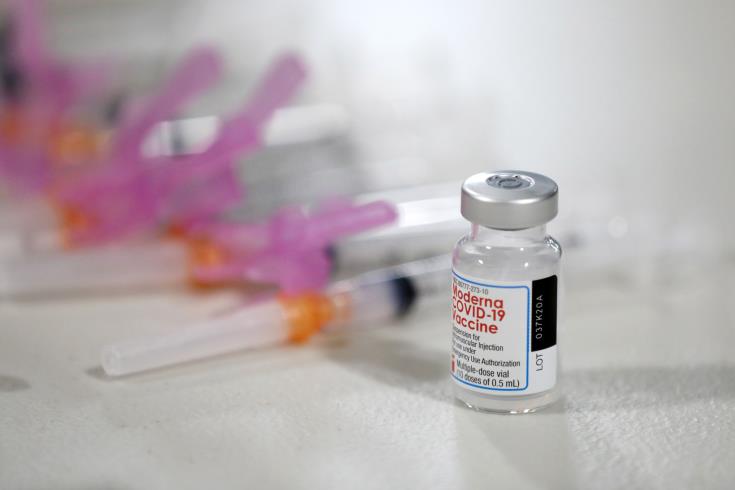Cyprus’ inoculation program against COVID-19 is to be boosted by vaccines from US pharmaceutical Moderna with the first batch of 1,200 doses expected to arrive on Tuesday night.
Quoted by the Cyprus News Agency, a Health Ministry official confirmed the arrival of Moderna’s first batch of vaccines to supplement those already supplied by Pfizer/BioNTech.
Cyprus is scheduled to receive a total of 16,500 Moderna vaccines before the end of March.
The island is among the first European Union countries to receive a consignment of vaccines developed by Moderna, following its approval by the European Medicine Agency last week.
Following up on the development, the European Commission granted conditional marketing authorization for the Moderna vaccine.
The EMA on Tuesday received a request for approval from AstraZeneca for the Covid-19 vaccine it developed with Oxford University.
The EMA said it would assess the application under an accelerated timeline, with the agency saying it could deliver its opinion to the Commission by 29 January.
Taking to Twitter European Commission chief Ursula von der Leyen hailed the application by Oxford-AstraZeneca as “good news”.
“Once the vaccine receives a positive scientific opinion, we will work full speed to authorise its use in Europe,” she tweeted.
Cyprus is expected to receive 1.2 mln doses, almost half of its 3 million order from Astra Zeneca while the EU has placed an order for 400 mln doses of AstraZeneca’s COVID-19 vaccine.
AstraZeneca has previously been criticised over a lack of clarity and transparency on trials that had shown varying outcomes in the jab’s efficiency.
Initial large-scale trials in which volunteers in the UK and Brazil were given two full doses showed 62% effectiveness while trials were halted due to a participant of the clinical studies developing encephalomyelitis.
In earlier comments to the Financial Mirror, Dr Christos Petrou, Associate Professor of Pharmacy at the University of Nicosia said that a number of setbacks had delivered blows to an otherwise scientifically very credible vaccine.
He said these setbacks had put Astra Zeneca behind other pharmaceuticals in the race, such as Pfizer and Moderna.
“However, due to the large number of doses expected from Astra Zeneca, it is this vaccine that will eventually pull us out of the pandemic,” said Petrou.










